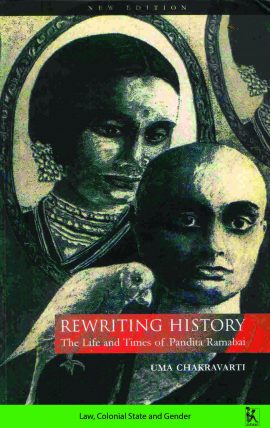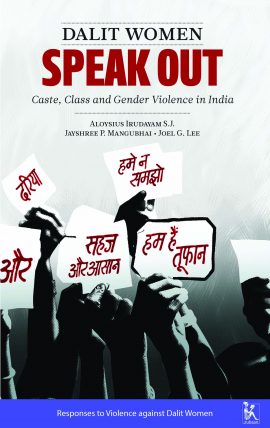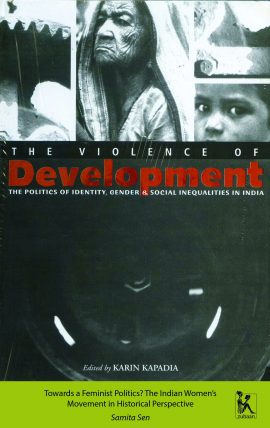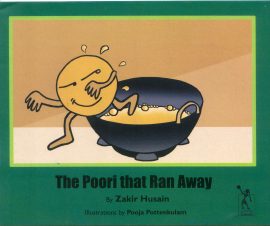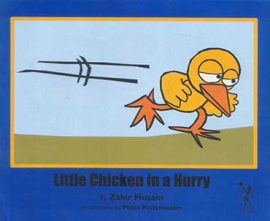No products in the cart.
Return To Shop
Log in / Sign in
Login
Register
Restoring Order in Manipur: The Drama of Contemporary Women’s Protests
₹ 70
Two prominent protests in Manipur by women in recent years, one an individual one and the other a collective one, have brought to national attention the brutalities committed by the armed forces on ordinary citizens under the Armed Forces Special Powers Act.
This essay highlights what those protests mean for peace in Manipur, and how women have played a critical role in exposing the impunity with which human rights are violated under the exceptional circumstances created by the AFSPA. It also questions the unethical nature of militarization and the patriarchal nature of the State.
Broadly containing two segments, it gives a background to Irom Sharmila’s protests and her reasons for choosing hunger strike as her method of protest. The discourse of conscience and Satyagraha that Sharmila evokes is brought out through interviews. This is followed by an analysis of the 2004 public disrobing by the Meira Paibis, in protest against the rape and murder of a young woman by the personnel of the Assam Rifles.
The essay shows the inversions brought about by both protests via a comparison between Irom Sharmila’s prolonged hunger strike against an exceptionally violent law, and the Indian Army Rape Us protests by the Meira Paibis. Both challenge the division between the public and the private, holding the state publicly accountable for atrocities committed in private. Food and clothing, one a biological necessity and the other an important social norm, are given up by the protestors. According to Mehrotra, this shows the power of the human body generally, and the female body particularly, to formulate and transmit subversive messages. She finds that underlying the protests is a common thread of rebuilding Manipur out of all the chaos.
Add to cart
Law, Colonial State and Gender
₹ 70
Chakravarti’s essay counters the claim that in the pre-colonial period, a ‘fixed’ Hindu law didn’t exist because of multiple caste laws, by arguing instead that even those separate caste laws were bound by a broader rational framework, enforced as such by the Peshwai.
Chakravarti analyses the three legal issues of widow remarriage, conjugality and the age of consent to explore how the colonial laws affected women; the relationship between the caste panchayat and the larger legal culture of the second half of the nineteenth century, and whether the textual law was more or less repressive than customary law.
Women came under the purview of the colonial law because of a weakening of the caste panchayats, and the new British administration gave men a choice of forum through which to enforce patriarchy.
They were also brought under the colonial state through criminal cases against them, such as those for prostitution and abortion. The colonial state was able to do this effectively because the patriarchal Indian community also had the same goals. Despite the inherently patriarchal nature of colonial laws, women also sought the system out for cases of adoption and rights over their parents’ property.
The essay also points to how cultural nationalism unified ‘Hindus’, placing a Brahmanical patriarchal notion of womanhood instead of caste and regional differences, raising important questions about the relationship among the colonial state, law, family, caste panchayats and gender in the nineteenth century.
Add to cart
Responses to Violence against Dalit Women
₹ 70
A qualitative as well as quantitative ethnography of 500 Dalit women who had been subjected to verbal, sexual and physical violence by men of the dominant castes, this essay starts as a narrative of individual Dalit women and moves towards an analysis of the reasons for the kinds of responses these women received when they tried to seek justice.
The essence of the essay’s argument is that despite the existence of adequate legal measures, Dalit women still face insurmountable obstacles while getting those measures implemented, assuming of course that they know that what has been perpetrated against them is legally actionable.
Typically, the responses to such violence include the women not seeking legal remedies in the first place; women getting blocked at the community level (by perpetrators, by the dominant caste community, by dominant caste Panchayats, by their own families, or by Dalit panchayats) from accessing legal remedies; women receiving some informal, inadequate form of justice by NGOs or panchayats; and women getting blocked by the police from accessing legal remedies.
The author finds that state impunity, dominant caste impunity and the collusion between the two is the central reason for Dalit women not being able to receive the formal redress that they ought to. To that effect, the author suggests that challenging this impunity will be the primary task of organizations seeking Dalit women’s empowerment.
Add to cart
Towards a Feminist Politics? The Indian Women’s Movement in Historical Perspective
₹ 70
Samita Sen’s essay traces the history of the Indian Women’s Movement from the 1920s to the present day. The chronological as well as thematic logic of the essay follows three primary heads: a historical background, the Uniform Civil Code (UCC) controversy, and the political implications of the reservation for women in legislatures.
The historical background highlights four critical issues: the tensions and fractures within the women’s movement, how these fractures were related to the mediated relationship between women and the conception of their ownership by the nation-state, how the differences amongst women could be managed or transcended to create a political community to which women will want to belong, as opposed to being shunted into it, and finally, the issue of women’s agency in politics.
The discussion on the UCC becomes an example of how the community and communal politics are deeply implicated in the politicization of personal laws, and how the rise of nationalism and the politicization of the ‘private’ familial domain placed personal laws at the centre of the colonial-nationalist conflict. The initial consensus amongst the women’s movement for reforming the gender discrimination in personal laws broke down by the time the Women’s Reservation Bill was introduced. This also marked a shift in focus from demanding legislation from the state to a greater participation of women in state affairs.
For Sen, a new feminist politics has to address struggles of class, caste, community, religion et al, without displacing gender as the central concern, making this essay one of crucial importance for understanding the origins of the issues facing feminist politics today.
Add to cart
A Flower’s Song
₹ 60During the current COVID-19 surge we are shipping orders from Delhi once per week. Please allow 8-10 business days for delivery.
If you were a little seed, safe and warm, nestled down in the earth, wouldn't you always want to stay there? This is the story of how one gul-i-abbas breaks out of her safe home and grows outwards and upwards, towards the light. But if even the most beautiful flower must fade and die, what is the prpose of life?A poignant tale of how the meaning of one life is to bring joy to another._______
 The Magic Key SeriesThe Magic Key is a series of illustrated folktales retold by India's third President, Dr Zakir Hussain. 'For all children,' he wrote, 'the first books they read are the key to the magic of the world.' Translated into English by the author's great-granddaughter Samina Mishra, these books will delight anyone learning to read for the first time, and are perfect for parents and teachers to read aloud.
The Magic Key SeriesThe Magic Key is a series of illustrated folktales retold by India's third President, Dr Zakir Hussain. 'For all children,' he wrote, 'the first books they read are the key to the magic of the world.' Translated into English by the author's great-granddaughter Samina Mishra, these books will delight anyone learning to read for the first time, and are perfect for parents and teachers to read aloud.Blowing Hot, Blowing Cold
₹ 60During the current COVID-19 surge we are shipping orders from Delhi once per week. Please allow 8-10 business days for delivery.
How can you blow on one thing to warm it up, and blow on another thing to cool it down?This charming fable of one ordinary woodcutter's apparently magical breath brings to life the wonder and mystery of the simplest things in life._______
 The Magic Key SeriesThe Magic Key is a series of illustrated folktales retold by India's third President, Dr Zakir Hussain. 'For all children,' he wrote, 'the first books they read are the key to the magic of the world.' Translated into English by the author's great-granddaughter Samina Mishra, these books will delight anyone learning to read for the first time, and are perfect for parents and teachers to read aloud.
The Magic Key SeriesThe Magic Key is a series of illustrated folktales retold by India's third President, Dr Zakir Hussain. 'For all children,' he wrote, 'the first books they read are the key to the magic of the world.' Translated into English by the author's great-granddaughter Samina Mishra, these books will delight anyone learning to read for the first time, and are perfect for parents and teachers to read aloud.The Poori that Ran Away
₹ 60
This little poori does not want to be eaten!Buddhu's mother is too busy wiping his nose to notice that the poori she is cooking is almost burnt.But is this fearless little poori going to hang around waiting to be eaten? 'Bet you can't catch me!' she taunts and she's off!Outrunning the farmer and his friends, outwitting the rabbit, and outfoxing the fox, Poori thinks she can never be caught! But can she?
Add to cart
_______
The Magic Key Series
The Magic Key is a series of illustrated folktales retold by India's third President, Dr Zakir Hussain. 'For all children,' he wrote, 'the first books they read are the key to the magic of the world.' Translated into English by the author's great-granddaughter Samina Mishra, these books will delight anyone learning to read for the first time, and are perfect for parents and teachers to read aloud.
Little Chicken in a Hurry
₹ 60
A little chicken is in a hurry!Choozu Mian is a special little chicken — or so he thinks!As he hurries off to the King's Palace, he meets Fire, Wind and Water, each of whom is in trouble. But he's in too much of a rush to stop and help them.But when he's in the soup, will anyone come to his rescue? The Magic Key SeriesThe Magic Key is a series of illustrated folktales retold by India's third President, Dr Zakir Hussain. 'For all children,' he wrote, 'the first books they read are the key to the magic of the world.' Translated into English by the author's great-granddaughter Samina Mishra, these books will delight anyone learning to read for the first time, and are perfect for parents and teachers to read aloud.
The Magic Key SeriesThe Magic Key is a series of illustrated folktales retold by India's third President, Dr Zakir Hussain. 'For all children,' he wrote, 'the first books they read are the key to the magic of the world.' Translated into English by the author's great-granddaughter Samina Mishra, these books will delight anyone learning to read for the first time, and are perfect for parents and teachers to read aloud.
Add to cart
_______
 The Magic Key SeriesThe Magic Key is a series of illustrated folktales retold by India's third President, Dr Zakir Hussain. 'For all children,' he wrote, 'the first books they read are the key to the magic of the world.' Translated into English by the author's great-granddaughter Samina Mishra, these books will delight anyone learning to read for the first time, and are perfect for parents and teachers to read aloud.
The Magic Key SeriesThe Magic Key is a series of illustrated folktales retold by India's third President, Dr Zakir Hussain. 'For all children,' he wrote, 'the first books they read are the key to the magic of the world.' Translated into English by the author's great-granddaughter Samina Mishra, these books will delight anyone learning to read for the first time, and are perfect for parents and teachers to read aloud.Crab Theology: Women, Christianity and Conflict in the ‘Northeast’
₹ 50
This essay addresses the role that religion plays in sociopolitical processes in Mizoram by attempting to gauge the impact that churches have had in mediating conflicts and brokering peace in the state since the 1960s. It also examines the role of women (and lack thereof) in peacebuilding processes and explores gendered critiques of the same.
As Sawmveli and Tellis write, churches in Mizoram are centralized bodies that hold immense power, thus enabling church leaders to aid Mizo ‘militants’ in negotiating with the Indian government as early as 1966, when insurgency first broke out. However, women did not have much of a decision-making role, neither within the clergy nor during negotiations. The lack of women’s participation can be explained, according to the authors, by the entrenched patriarchy and misogyny in Mizo society. In fact, interviews with Mizo women reveal that they acknowledge the crucial role the church played in mediation, but did not see their exclusion from the process as an issue.
The essay further states that since most political parties in the region are aligned with churches, patriarchy in politics overlaps with patriarchal church culture to marginalize women. However, they also discuss the many women’s organizations that have come up over the years to facilitate women’s entry into the public sphere. Women are also reclaiming traditional proverbs that were used to oppress and belittle them—the essay cites Lalrinawmi Ralte’s rewriting of a popular saying that devalues women as crab meat in the form of what she calls ‘Crab Theology’.
Add to cart
Finding Face: Images of Women from the Kashmir Valley
₹ 50
Sheba Chhachhi's piece offers an alternative to the visual landscape of Kashmir which, in the popular imagination of people today, is occupied by the ravages of war and countless martyred men. By placing itself as an invitation into a private space that is rarely, if ever, breached by dominant media discourses, this photo-essay highlights the absences in the pictures of carnage that are used to fuel propaganda on both sides of the conflict.The piece – comprising of a critical essay and a series of personal testimonies which are interspersed with photographs – seeks to bring human figures back into the landscape and give voice to those whose lives have been obscured in the din of a prolonged war. It makes space for the individual in a history of representation that is populated with recurring tropes and warring stereotypes which, Chhachhi argues, depersonalise the Valley and its conflicts. In her work, women are no longer silent victims, they emerge as textured human beings, not only with voices with which to speak, but also with eyes that are wide open. The testimonies have been taken over a period of six years and reflect varying positions, and the interviewees are students and professionals, Muslims and Pandits, teenagers and the aged.The photographs are extracted from a larger work which was initially presented as a photo-installation by Sheba Chhachhi and Sonia Jabbar. The photo-essay as a whole captures the life and times of women during conflict, including during the attempted implementation of the burqa diktat in the Valley. These individuated women stand out in the frames as they look back at the viewer in more ways than one.Please note that the photographs contained in this essay have been directly scanned from the printed book due to the non-availability of the originals.
Add to cart
Dealing with Conflict and Violence: The Power of Attitude
₹ 50
This piece was written after the abduction of the author's husband by ULFA terrorists in Majuli, Assam where they worked as social development workers in 1996–97. In this chapter, Ghose explores her experience of learning to cope with the aftermath. Moving from personal reflections to discussing universal aspects of such suffering, she throws light on the far-ranging impact of violence that often goes unacknowledged. She then captures the different stages that an individual undergoes in the period of suffering, and consequently looks at strategies of coping which are effective and can transcend harmful responses. By shifting the focus onto the individual's own reaction to violent events, Ghose is able to break down the mistakes that one is susceptible to making almost reflexively – mistakes that perpetuate a cycle of violence.Written in the form of a prefaced monograph, the title of this piece is drawn from a short course that the author attended in Delhi, which gave her the fresh perspective and strength needed to make this reflective essay a reality. Ghose's insights on responding to events of violence or conflict are embedded in a critique of certain forms of protest as well as what she calls the commonly held 'victim attitude'.For Ghose, strategies of coping become methods of achieving much more. In a world full of violence and rage where a vicious cycle of the two is kept alive, it becomes imperative to rise above feelings of aggression and victimisation that inevitably cause more harm than good.
Add to cart
From Pity to Power: Musings of a Health Rights Activist
₹ 50
For this essay, Adrienne Germain draws from her professional life, especially her interactions with female sex workers in the Indian subcontinent. The author details how action around sex workers is often centred on “rehabilitation” and “relocation” as though all women in sex work had been “forced” into it by circumstance. Germain believes that this position deprives these women of their agency and fails to respect their autonomy as individuals.The central theme of the essay is the difference of opinion among feminists, and between some feminists and the sex workers’ movement, on if sex work is or can be an autonomous choice by women, or is always and only a form of violence and exploitation of women. Another important theme dealt with in the essay is the interface of sex work and HIV, where policy makers often see sex workers only as a vector of the disease with programmatic interventions often not recognizing these workers as agents of change themselves. She mentions her engagement with several non-governmental organizations in India that led her to realize the need to establish and implement sex workers’ labour rights.The author also discusses her positionality and mentions the emotive barriers or discomforts that still remain for her around sex work, which she attributes to differences in life experience. She describes these “emotive barriers” as stemming from the fact that she cannot fully imagine the choices, as much as she respects their right to sex work. In addition to general opposition to defending the rights of women in sex work, she discusses how many women perceive these sex workers as a direct threat to themselves, to their marriages, or to a social order in which they feel “safe”. The author states that in the broadest sense, both feminist and sex workers’ movement are founded on the commitment to women’s autonomy especially control of their bodies. She concludes with a call for solidarity and for women to unite across diversities to mitigate the challenges around sex work.
Add to cart
Contact Us
© Zubaan 2019. Site Design by Avinash Kuduvalli.
Payments on this site are handled by CCAvenue.


